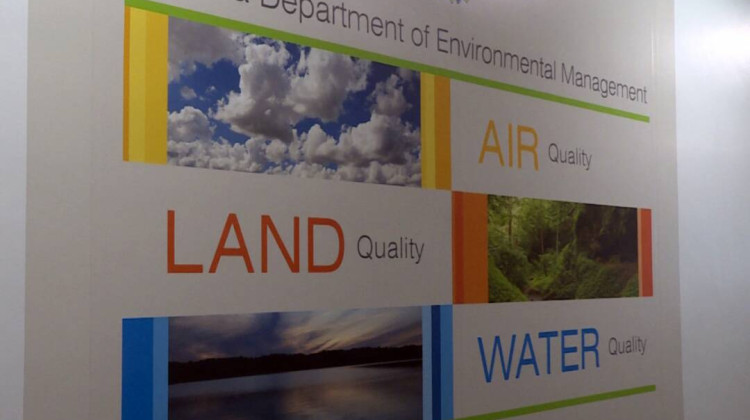Indiana state senators passed a bill on Monday that would create a pilot program to study a financing tool for retiring coal plants early.
Much like refinancing a home, securitization allows customers to pay off the remaining costs of coal plants over a longer period of time at a lower rate — which is supposed to lower their energy bills and make the transition to renewable energy easier. But some lawmakers worry the Senate bill, as written, won’t accomplish those goals.
There’s no language in the bill that guarantees rates will go down for utility customers in the pilot program. Some lawmakers and consumer advocates worry that utility customers with Centerpoint Energy — which has volunteered to participate in the pilot — will be charged twice for the cost of its retiring A.B. Brown coal plant.
READ MORE: How Can We Get Rid Of Retiring Coal Plant Costs? Energy Task Force Takes A Look
Sen. Jean Breaux (D-Indianapolis) proposed an amendment that would have ensured lower energy bills for customers, but the measure failed. Another amendment authored by Breaux would have used money saved through securitization to provide job training and economic development opportunities in communities that host coal plants. It also failed.
Breaux said utilities need to work with the low-income and minority communities that host these retiring plants to clean up any contamination and replace them with economic development that’s positive for those communities.
“To decommission these facilities, get the proceeds and have no responsibility to the community in which you were once located and doing business — I think that is poor public policy," she said.
Breaux said she hopes the idea will be discussed further in the state's 21st Century Energy Policy Development Task Force.
The bill now moves to the House for consideration.
Contact reporter Rebecca at rthiele@iu.edu or follow her on Twitter at @beckythiele.
Indiana Environmental reporting is supported by the Environmental Resilience Institute, an Indiana University Grand Challenge project developing Indiana-specific projections and informed responses to problems of environmental change.
 DONATE
DONATE









 Support WFYI. We can't do it without you.
Support WFYI. We can't do it without you.